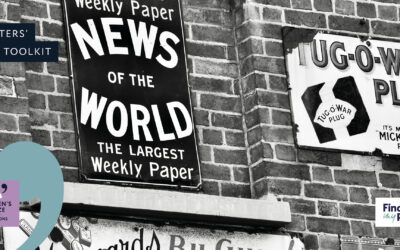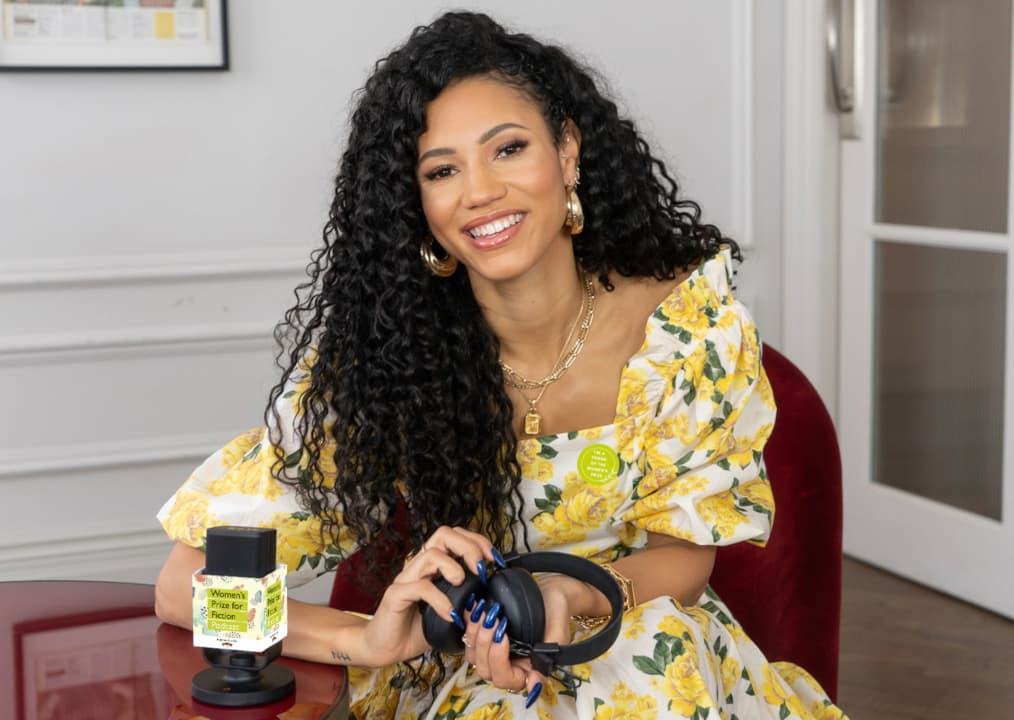
How to pitch your novel
Preparing to Pitch: The novelist salesperson “Can you summarise your novel in a sentence or two,” my marketer, Eloise asks,…


In writing, as in life, first impressions can count for a lot. If you’re looking for ways to elevate your Discoveries entry and catch the attention of the judges, read on for advice from top agents, editors and authors on how to get your passion across, spin a winning pitch, and make a striking first impression.
With contributions from literary agent Natalie Jerome; bestselling author Abi Daré; senior editor Amy Mae Baxter; and editor-at-large Arzu Tahsin, recorded at our ‘Publishing for Writers’ event with GirlDreamer.
Curtis Brown literary agent Natalie Jerome underlines the importance of the elevator pitch, which means ‘being able to succinctly summarise your story and convey that with real conviction and clarity.’ Natalie goes on to explain that it can be helpful to think of comparative books (or even TV shows and films) to help craft your pitch, as an effective elevator pitch reads like ‘a topline, Netflix-style description: “this is like X” or “it’s similar to Y”.’
Natalie explains that a compelling elevator pitch is an effective way to communicate the essence of your book: ‘The very topline elevator pitch acts as a baton … from the writer, their creative vision goes to the agent, to the commissioning editor, then to the publicist, sales and marketing, and then out of the board room to the retailers, and so on. It’s really important that baton of information from the writer’s creative vision all the way through to the reader is watertight.’
“You are your biggest champion, you are a salesperson for your own story”
Amy Mae Baxter, senior editor at Dialogue Books, agrees that a well-crafted elevator pitch, with a selling ‘hook’, can drive enthusiasm for your book: ‘When we’re marketing, it is with a message in mind. And the book should always be able to stand for itself. As an editor, you’d hope that the writing can always back up that hook. No matter how good the package is, the writing has to sell itself as well. But none of that matters if the marketing and publicity team is not behind the initial pitch you put together at the beginning … Everyone has to be enthusiastic. And that drive has to come from the editor, which has to come from the agent, which has to come from initially the writer. It’s important that a writer is excited about promoting their book as much as the editor is.’
Being able to communicate your own passion for your book as a writer is equally as important, as Natalie explains: ‘You as an author, you are your biggest champion, you are a salesperson for your own story. That is part of the process too. So being able to convey that personality, along with the story, is really important.’
Speaking from experience, bestselling author Abi Daré agrees: ‘You really need to fall in love with your story and characters. That’s what comes out of you when you start talking [or writing your pitch]. If you’ve written a book that you would happily read yourself, and it amuses you, it makes you happy, makes you laugh, you can’t wait to get back to it. When you start to talk to agents, because you are so passionate about what you’ve written, about your subject matter, about your characters, that will come through. I’ve been to pitching competitions before where I’ve been quite nervous trying to talk about the book; I would say it helps to take little notes down to remind you of some of the key points of the book. And if you’re writing it, of course, perfect your elevator pitch. You can also get help from various literary consultancies as well.’
“ If we have a powerful voice and strong characterization, I’m sold ”
While it’s important to advocate for yourself as a writer, you don’t need to have a big social media presence to get noticed, a myth Natalie is keen to dispel: ‘One of the things I’m asked possibly most frequently, and I do want to put this to bed, is the idea that you have to have a big social media presence, that you have to have however many followers on TikTok or Twitter in order to get a book deal. Genuinely, it is about your story – it’s about the clarity of your voice, the clarity of your story, the urgency of it. And one of the things I have always been drawn to are stories that tell me something about the human condition.’
Editor-at-Large at Bonnier Arzu Tahsin concludes that the most important thing for her when it comes to submissions is potential and a strong voice: ‘Sometimes the work coming in is quite raw. But there are gems, there is gold, and I can see it. For me, it’s about voice. So if we have a terrific, powerful voice and strong characterization, I’m sold at that level … Obviously we want a great plot, but that’s all stuff [an editor] can do with the with the author down the line, but voice is very important … If I can connect with our protagonist or antagonist, then you’re halfway sold to me. And I’m prepared to do more work.’
Finally, here’s one tip from each of our contributors for anyone considering entering Discoveries:
Abi Daré: ‘Go for it. You might be tempted last minute to think that no one else is going to read or love your work. I say go for it, pour your heart into it and hope for the best. And if nothing comes out of it in the way you think, realise that you haven’t wasted that time or that effort. Every single piece you write goes into a bank of better writing for the future.’
Arzu Tahsin: ‘Just focus on the writing. Lose yourself in it, don’t try and second-guess yourself. As you’re writing, you’ve got to fall in love with your characters, you’ve got to be desperate to get back to them. And you’ve somehow got to screen out that judge-y voice or the fact that you’re going to show it to someone who knows about this stuff one day. If you can lose yourself and not think about anything else, or anyone else, that will be the best thing for your writing.’
Natalie Jerome: ‘Don’t give up. Rejection is part of the process. People not necessarily responding or agents not necessarily responding or even readers not necessarily responding is part of it all. The amazing author Kit de Waal explained how her first two books didn’t really perform and that prompted her to write her third book My name is Leon, which has been a monster hit. So my tip is to keep going.’
Amy Mae Baxter: ‘Writing is a joy. It can be difficult when you’re thinking about the admin and agents and prizes and money. All the difficulties that come with turning your passion into some sort of job. But I think it’s important to cling to the joy because that will see you through – loving the book, loving the words, loving the process will push you through.’
For all the details on the Discoveries writing programme, including how to enter, head to the Discoveries homepage.
To hear more from Natalie, Amy, Arzu and Abi – and learn how to navigate the publishing industry – watch this brilliant webinar: Publishing for Writers.

Preparing to Pitch: The novelist salesperson “Can you summarise your novel in a sentence or two,” my marketer, Eloise asks,…

Jacqueline Crooks’ debut novel Fire Rush was shortlisted for the Women’s Prize for Fiction and has been described by the…

Whatever your chosen non-fiction subject, the newspaper collection hosted by Findmypast, the inaugural sponsor of the Women’s Prize for Non-Fiction,…

When we’re in the middle of a project, it can be easy to forget the initial slog and the moment…
Tune into host Vick Hope and a line-up of incredible guests on our weekly podcast full of unmissable book recommendations.
